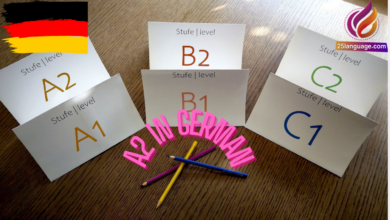The Different Ways of Saying “to like” in German II

Saying to like in German.
In my preceding post, I published the first part of the issue how to express in German that you like something (but only for things and people).
In this post, I’m going to explain which verb is used especially when you like a dish as well as how to express that you like doing something (verbs).
1. schmecken (regular verb)
a) Grammatical structure
Its grammatical structure is exactly the same as for gefallen: The food you like is the subject (nominative) and it conjugates the verb.
If it’s just one thing you like, you have to use the 3rd person singular (schmeckt) and if it’s more than one thing, you have to use the 3rd plural (schmecken).
The person who likes the food mentioned is in dative case (mir, dir, ihm, etc.).
Examples:
Das Essen (subject) schmeckt mir (dative object). (I like the food.)
Alkoholische Getränke schmecken ihm nicht. (He doesn’t like alcoholic beverages.)
It’s very usual and also correct to swap the subject’s (1st) and the dative object’s (3rd) position:
Mir schmeckt das Essen.
Ihm schmecken keine alkoholischen Getränke.
b) Use
Schmecken means exclusively that you like the taste of food and drinks.
There is a slight difference between schmecken and mögen when talking about food an drinks:
- schmecken refers more to the taste of food or a drink during the moment of or just after eating or drinking it: Das Bier schmeckt mir nicht (I don’t like [the taste of] this beer).
- mögen has a more general meaning: Ich mag kein Bier (generally, you don’t like beer).
As you can observe, the use of the article before the dish/drink helps to distinguish the punctual meaning (I like this dish) from the general meaning (generally, I like Mexican food).
2. Verb + gern(e) (adverb)
a) Grammatical structure
You conjugate the verb of the activity you like doing and put gern(e) just behind. The “e” is optional, it doesn’t change the meaning:
Ich koche gern.
———X———
I like cooking.
In this sense, as you can see above, the order is inverse of that in English.
If you want to add objects, they go behind gern:
Sie lernt gerne Sprachen. (She likes learning languages.)
b) Use
This adverb is used only with verbs. You can also add it to mögen, in this case it emphasizes the liking of something: Ich mag fern elektronische Musik. (I like electronic music very much.)
Negation
Schmecken has the same negation as gefallen. You put nicht at the end of the sentence (unless there is a pas participle):
Das Essen schmeckt mir nicht. Das Essen hat mir nicht geschmeckt.
Mir schmeckt das Essen nicht. Mir hat das Essen nicht geschmeckt.
With gern, the negation (nicht) is put directly before it:
Ich fahre nicht gern Rad. (I don’t like cycling.)
Sie lernt nicht gern Sprachen. (She doesn’t like learning languages.)
It is useful saying to like in German.





























